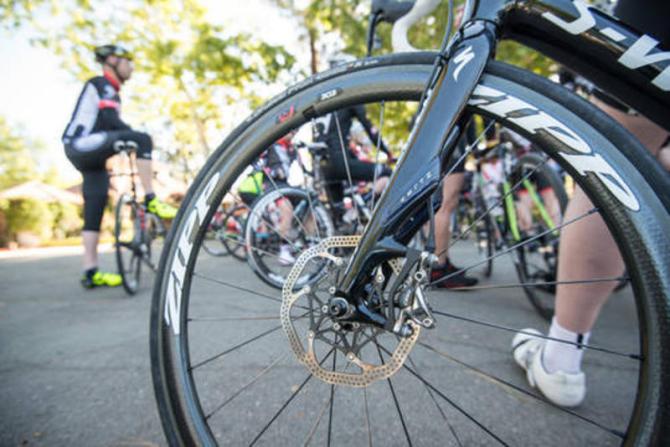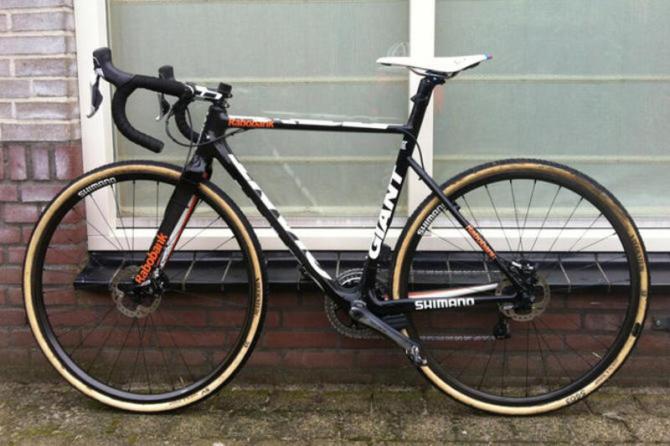Will the UCI sanction disc brakes in the pro peloton?
International federation to consider hydraulic rims if test data provided


This story originally appeared on Bikeradar
In the aftermath of SRAM’s announcement of disc brake options for their new Red 22 groupset, a test rider tweeting a photo of a comparable offering from Shimano, and Formula disc brakes said to be compatible with Campagnolo EPS shifters, the trend is inexorably moving towards disc brakes for road racing.
But Matthieu Mottet, technological coordinator at the UCI, told BikeRadar serious challenges need to be overcome before disc brakes could even be considered for use in UCI sanctioned pro races – and they start with the analysis of temperature, performance and crash test data.
“We’re thinking about disc brakes for future use, but for the moment we don’t have enough data about them,” he said, adding that the first stage would be analyses of the manufacturers’ performance figures. He said, however, that none of the road disc manufacturers had provided data yet.
He pointed out two additional safety considerations. Firstly, if some riders used discs and other used rims, the variation in braking performance would be dangerous inside a fast-moving peloton, potentially leading to even more crashes.
It means that, if disc brakes were sanctioned, all the main manufacturers – Shimano, Campagnolo, SRAM and market newcomers such as TRP – would have to supply UCI accredited discs to the pro teams simultaneously.
A second safety concern, Mottet pointed out, is heat buildup in the discs, which could lead to serious burns if the brakes touched riders in a crash.
Get The Leadout Newsletter
The latest race content, interviews, features, reviews and expert buying guides, direct to your inbox!
In the meantime, hydraulic rim brakes could fill the gap, offering better modulation but similar stopping power to cable brakes. The UCI’s only stipulation concerning hydraulic rim brakes is that the brake hood is not overly elongated to become a de facto handlebar extension giving an aerodynamic advantage.
Sam started as a trainee reporter on daily newspapers in the UK before moving to South Africa where he contributed to national cycling magazine Ride for three years. After moving back to the UK he joined Procycling as a staff writer in November 2010.